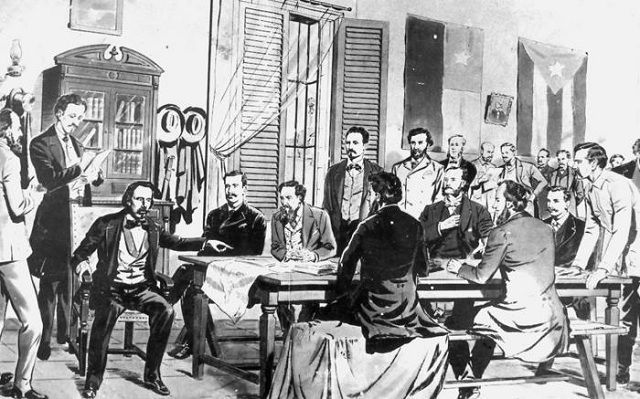
The Jimaguayú Constitution, the magna carta that would spearhead the new liberating effort started on February 24, 1895, was approved on September 16 of that year by 20 delegates who met in that town of the province of Camagüey, where the fall in combat of Ignacio Agramonte in 1873 stamped greater symbolism on the third Cuban constitutional text.
The constituents had the historical responsibility of eliminating the contradictions between civilians and the military that the Guáimaro Constitution of 1869 failed to solve after giving the House of Representatives full authority when there was still no free territory to establish a government. The resulting disagreement between the army commanders and the government in arms led to military defeat and paved the way for the Zanjón Pact.
In Jimaguayú, on the contrary, unity prevailed among the delegates elected by the Army Corps, who gave the military commanders leeway to conduct the war, even if not all contradictions were resolved.
Article 13 of the new Constitution said: "The peace treaty with Spain must provide for the total independence of the Island of Cuba", which put paid with the treasonous Zanjón Pact that aborted the 1868 war without either independence or the abolition of slavery.
The absence of Martí, who had fallen in combat a few months earlier, prevented the full reflection in the document of a balance of powers, as he had warned in a meeting with Generals Maximo Gomez and Antonio Maceo, which he later summarized in his Diary: "The Army, free, and the country, as a country and with all its dignity represented".
Nor would the new constitutional order reflect his anti-imperialist vision and the role of the future independent republic in the face of the nascent voracious U.S. imperialism, which was already spreading throughout the lands of America. Undoubtedly, the Apostle would have also been elected as president of the Governing Council.
Nevertheless, the Jimaguayú Constitution was a milestone of unity among the Mambi fighters that paved the way for the Necessary War organized by Martí to defeat Spanish colonialism through the Cubans' own efforts, a historical task eventually frustrated by the Yankee intervention of 1898 and the subsequent imposition of the neocolonial republic.
Sidebar

 Agencia Cubana de Noticias
Líder en información nacional
Agencia Cubana de Noticias
Líder en información nacional








Nos reservamos el derecho de no publicar los comentario que incumplan con las normas de este sitio